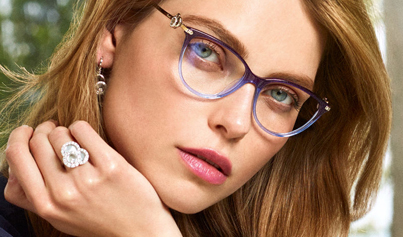When purchasing designer eyewear, there are several important factors to consider to ensure that you make the right choice and get the most out of your eyewear investment. Whether you are buying prescription glasses or sunglasses, these considerations can help you find the perfect pair of designer eyewear that not only complements your style but also provides optimal vision and eye protection.
- Quality of Materials and Craftsmanship: The first and foremost aspect to consider when purchasing designer eyewear is the quality of materials and craftsmanship. Designer eyewear is known for its premium materials, attention to detail, and superior craftsmanship. Look for frames made from high-quality materials such as acetate, titanium, or stainless steel. These materials are durable and lightweight, ensuring comfort during extended wear.
- Brand Reputation: Different designer brands have their unique styles and reputations. Research the brands you are interested in to understand their history, values, and design aesthetics. A well-established brand is more likely to produce eyewear of superior quality and style. It’s also important to consider if the brand is known for its eyewear or if it’s primarily a fashion brand that dabbles in eyewear as a secondary product.
- Frame Shape and Style: Your choice of frame shape and style should complement your face shape and personal style. Consider frames that enhance your facial features and align with your fashion preferences. For example, rectangular frames may work well for round faces, while round frames can soften angular features. The right style can make a significant difference in how the eyewear looks on you.
- Fit and Comfort: The fit of your eyewear is crucial for both comfort and functionality. Ensure that the frames fit well on your face without being too tight or too loose. The bridge width and temple length should be suitable for your facial dimensions. Ill-fitting eyewear can cause discomfort, and headaches, and may not provide the best vision correction.
- Prescription and Lens Options: If you require prescription lenses, make sure the designer eyewear can accommodate your specific prescription needs. Many designer brands offer the option to customize lenses to your prescription, ensuring that you get the best vision correction. Additionally, consider lens coatings and options for UV protection, anti-reflective coatings, and photochromic lenses if needed.
- UV Protection: Sunglasses are not just a fashion accessory; they also serve the essential function of protecting your eyes from harmful UV rays. Look for designer sunglasses that provide 100% UV protection. This protection is crucial in preventing eye damage and reducing the risk of cataracts, macular degeneration, and other UV-related eye conditions.
- Lens Quality: The quality of the lenses is as important as the frame. High-quality lenses should be clear, distortion-free, and scratch-resistant. Ask about the lens materials used, such as polycarbonate or high-index plastic, which are known for their durability and lightweight properties. The choice of lens material can impact the overall weight and comfort of your eyewear.
- Durability: Designer eyewear often comes with a higher price tag, so you’ll want to ensure that your investment is durable. Consider factors such as hinge quality, frame materials, and overall construction. Well-constructed eyewear should withstand daily wear and tear and last for an extended period.
- Warranty and Return Policy: Check the warranty and return policy provided by the manufacturer or retailer. A strong warranty can give you peace of mind in case of any defects or damage, and a flexible return policy ensures that you can exchange or return the eyewear if it doesn’t meet your expectations.
- Price and Budget: Designer eyewear can vary significantly in price, so it’s important to set a budget before you start shopping. While quality often comes at a higher cost, you can find designer eyewear at various price points. Consider your budget and prioritize factors like brand reputation, materials, and features that matter most to you.
- Trends vs. Timelessness: When choosing designer eyewear, think about whether you want a trendy style that reflects current fashion trends or a timeless design that will remain in style for years. Trendy frames may need to be replaced more frequently, while timeless styles can be a long-term investment.
- Try Before You Buy: Whenever possible, try on the eyewear before making a purchase. This will give you a chance to see how they look and feel on your face. You can also seek the opinion of a knowledgeable salesperson to help you make an informed decision.
When purchasing designer eyewear it is not just about making a fashion statement; it’s also about investing in quality, comfort, and eye health. Consider the 12 factors mentioned above to ensure that your designer eyewear choice is not only stylish but also functional and long-lasting. With the right pair of designer eyeglasses or sunglasses, you can enhance your look while enjoying clear vision and eye protection.

